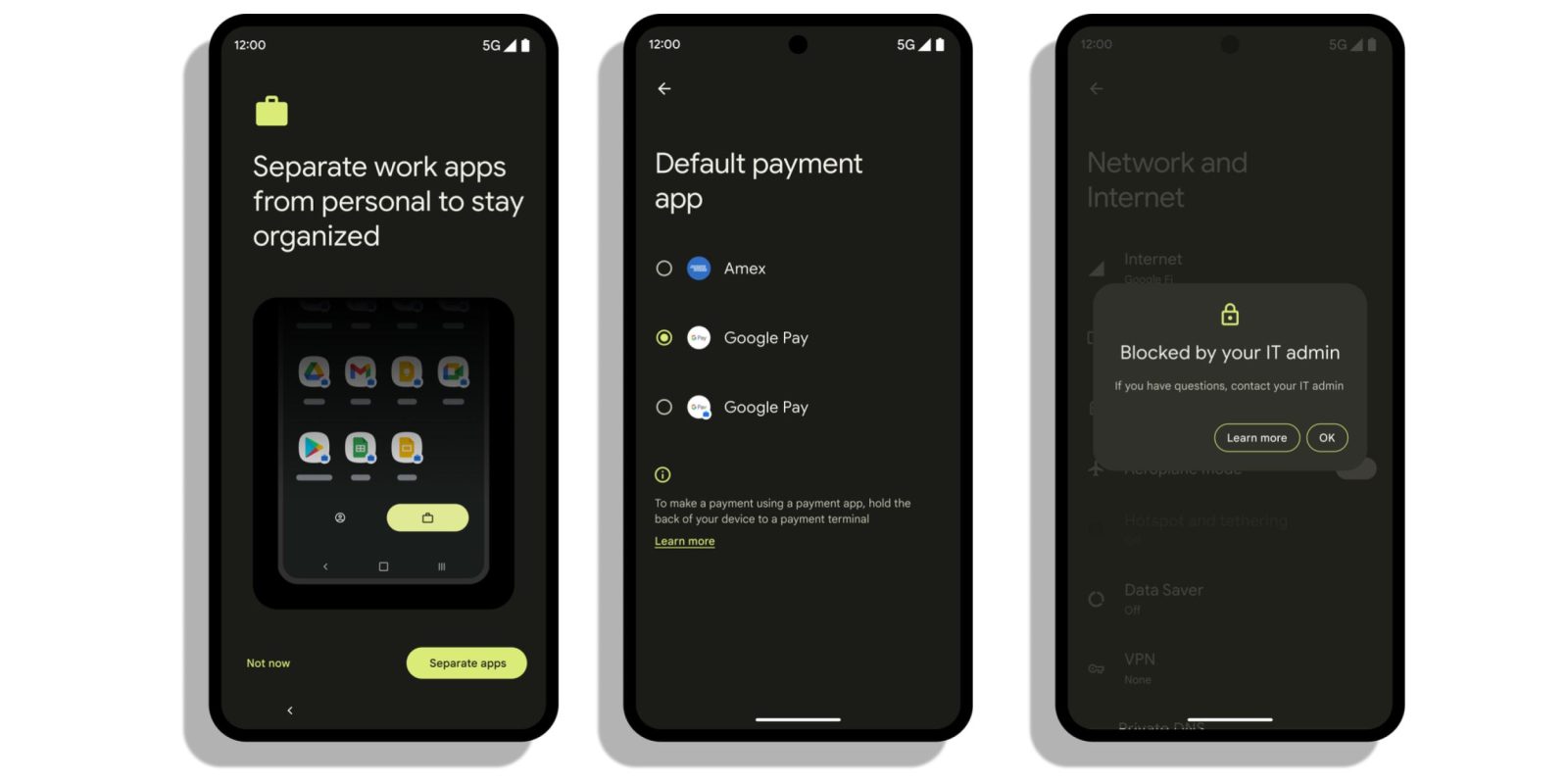
Android 13 brings a rather sizable update to the end-user Work Profile experience and Android Enterprise management experience for IT administrators.
With a Work Profile enabled, Android separates personal and enterprise apps, as well as data and usage. This includes in the app drawer, where you’ll get two instances of certain applications, like Gmail, Calendar, and Google Drive.
Android 13 provides a “simpler design, improved productivity, and new cross-device capabilities” for Work Profiles. Employees can choose to open an app in either the personal or Work Profile “depending on where it’s installed.” Users can also switch between work and personal photo galleries when sharing pictures with an application. Additionally:
If they’d prefer to keep work-related content out of their personal apps — so a work-related training video on YouTube doesn’t affect their personal watchlist, for example — they can choose to access that content in their browser instead.
On the productivity front, “smart dictation is now available in work profile apps on Pixel devices,” with dictation recommendations (like corporate jargon) separated out of personal conversations. Meanwhile, work apps/profiles on Android 13 can use NFC for digital access badges and tap-to-pay. An upcoming feature will let you use Phone Hub to respond and access work messages, notifications, and pictures on mobile devices from a corporate Chromebook.
Meanwhile, a central hub will let employees “manage device security and privacy settings, and view company policies applied on the device as well as device data shared with IT admins.”
Looking ahead, Android 13 is getting a Lost Mode that allows IT admins to “lock down and locate company-owned devices, prevent unauthorized access and display company contact information on the device screen.” Another upcoming feature is “Stay Private on Work Wi-Fi”:
…will further improve employee privacy by automatically encrypting and routing network traffic for personal profiles when employees are on company Wi-Fi. Both features will be available through the Android Management API.
Admins also have more control over device Wi-Fi for tethering, Wi-Fi Direct, and security logs (including Bluetooth and password activities). Lastly, Android 13 lets Google bring all “new features and management capabilities more frequently” since the Android Management API can now control user settings and device provisioning.
More on Android 13:
- First patch to Android 13 fixes five Pixel issues, 6a update delayed
- Android 14 Beta likely starts April 2023 as Android 13 QPR period shortened
- Pixel 4 and 4 XL dropped from Android Beta Program ahead of 13 QPR1
FTC: We use income earning auto affiliate links. More.




Comments